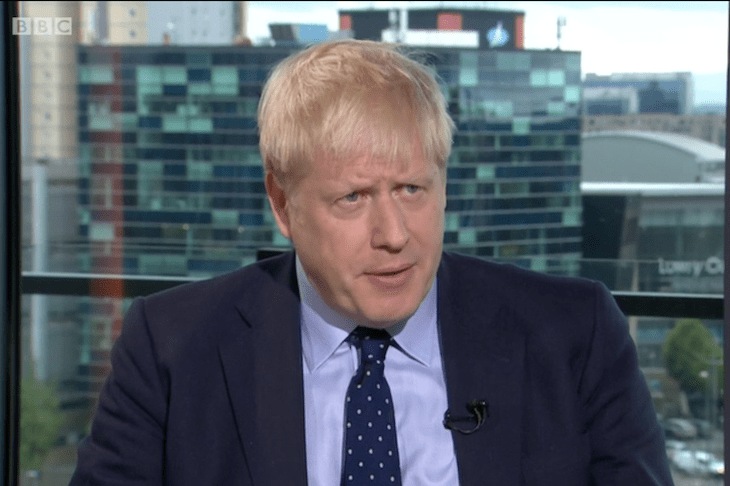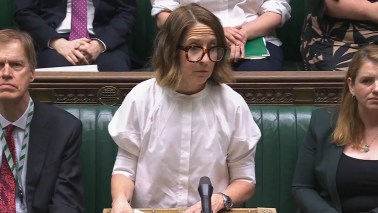In a feisty interview on The Andrew Marr Show, Boris Johnson defended his use of the term ‘surrender act’, calling it a ‘martial metaphor’ of the type that has long been used in British politics. He said that he had been a ‘model of restraint’ in his own language. He did, however, express regret for sounding so dismissive of the Labour MP Paula Sherriff’s concerns about death threats.
It was clear that Boris Johnson had three intentions in this interview. First, to ram home his message that the Benn Act is a ‘surrender act’ – I lost count of the number of times he used the phrase. Second, to try and turn the conversation to the Tories’ domestic agenda. Number 10 believe that they benefit when they can show voters that they want to be talking about the domestic issues – the NHS, the police, education – that voters care about most. Third, he wanted to emphasise that only by ‘getting Brexit done’ can the country move on. His hope is that the public looks at the dysfunction in parliament and concludes that the only way to break this deadlock is to give him a majority in a general election.
Boris Johnson still tries to sound positive that the UK can leave the EU on 31 October despite the Benn Act. He talked about there being a ‘good chance’ of a deal, but his body language didn’t express any great confidence about this. When Andrew Marr asked him if he would resign rather than extend, he said ‘I’ve undertaken to lead my country and party at a difficult time and I am going to do that’. This implies that he wouldn’t quit even if he was forced into extending by parliament or the courts.
The key question about this extension is who Leave supporting voters blame for it. This is one reason why Number 10 are so determined to have a go at getting around it. Even if they lose again in the courts, that would be better for them than simply writing the extension letter.
Boris Johnson is in campaign mode already. He was almost out of his seat with excitement as he laid into Labour for its plan for a four-day week, its desire to scrap private schools and abolish the schools inspectorate, Ofsted. But he was clear that the Tories won’t be fighting that election in a pact with Nigel Farage and the Brexit Party. Earlier this week, Boris Johnson told Tory MPs that the party would lose as much support as it would gain from such an agreement and I really don’t see him shifting on this question.
The interview ended with Boris Johnson again denying any improper dealings with Jennifer Arcuri in terms of public money. He said that there was ‘no interest to declare’ in terms of his dealings with her. If this story becomes one about Boris Johnson’s personal life, I suspect it will have very little impact – that aspect of his character is priced in by voters. If it becomes about public money, then that will be a different matter. But those close to Boris Johnson remain remarkably unconcerned about this story; they are convinced that there isn’t any great scandal to come here.







Comments